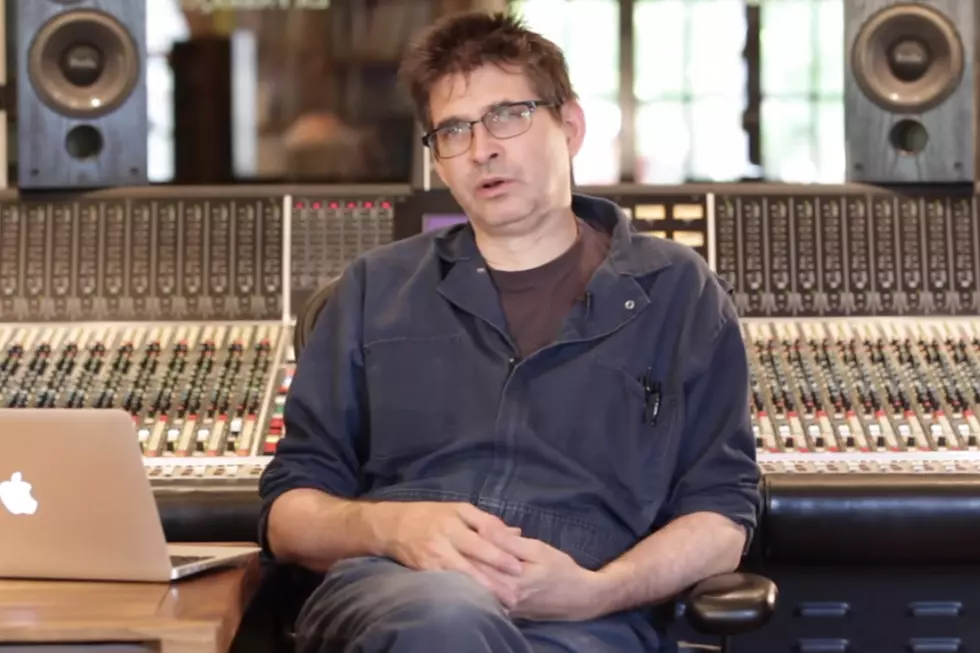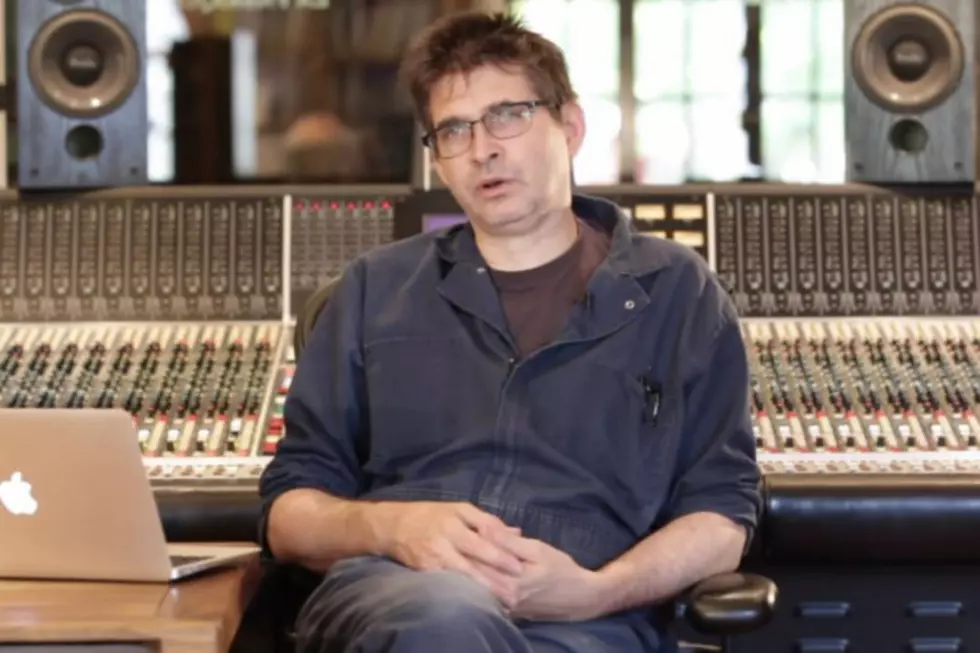
Steve Albini Defends the Post-Internet Music Industry
On Saturday (Nov. 15), Steve Albini delivered the keynote address at Face the Music, a music industry conference in Melbourne, Australia. Why Albini? Perhaps best known for producing Nirvana’s third and final album, ‘In Utero,' he has, as he put it in his speech, “been active in the music scene in one way or another since about 1978.”
And if those in attendance weren’t paying attention before he started, we’re sure this caught their attention: “I’ve made a couple thousand records for independent bands and rock stars, for big labels and small ones. I made a record two days ago and I’ll be making one on Monday when I get off the plane. So I believe this puts me in a pretty good position to evaluate the state of the music scene today.”
That evaluation included an examination of the internet’s role in the industry, and how some of his colleagues believe it has “cut the legs off the music scene and that pretty soon nobody will be making music anymore because there’s no money in it.”
He doesn't necessarily agree with that, and goes into great detail as to why the music industry has never been perfect, whether it was before or after the advent of the internet. And he also explains how the new post-internet experience of music, “from a fan’s perspective,” has its benefits, like more accessibility to music and giving long-lost tunes a second chance.
Don't worry, Albini looks at the band’s perspective, too -- most notably, the fact the that they can do nearly anything with their recordings -- and nearly everyone can make recordings.
In short, the internet has made it much easier to conduct the day-to-day business of being in a band and has increased the efficiency. Everything from scheduling rehearsals using online calendars, to booking tours by email, to selling merchandise and records from online stores, down to raising the funds to make a record is a new simplicity that bands of the pre-internet era would salivate over. The old system was built by the industry to serve the players inside the industry. The new system where music is shared informally and the bands have a direct relationship to the fans was built by the bands and the fans in the manner of the old underground. It skips all the intermediary steps.
He also explains how music fans’ involvement with getting the music they love however they want it opens them up to spending more on concerts. “They are willing to buy more ephemera and eager to establish a personal relationship to the people who make the music,” he says.
The internet has facilitated the most direct and efficient, compact relationship ever between band and audience. I do not mourn the loss of the offices of inefficiencies that died in the process. I suppose some people are out of work. But the same things happened when the automobile replaced the horse, and all the blacksmiths had to adapt, spending their time making garden gates rather than horseshoes.
We don’t want to give away all the goodies from his speech, so make sure to read the entire transcript here, courtesy of the Guardian.
Do you agree with Albini's perspective? Let us know in the comments below!
And if you want to get even more insight from the music veteran, check out the below video of his Q&A with ‘Mix With the Masters’:
More From Diffuser.fm









